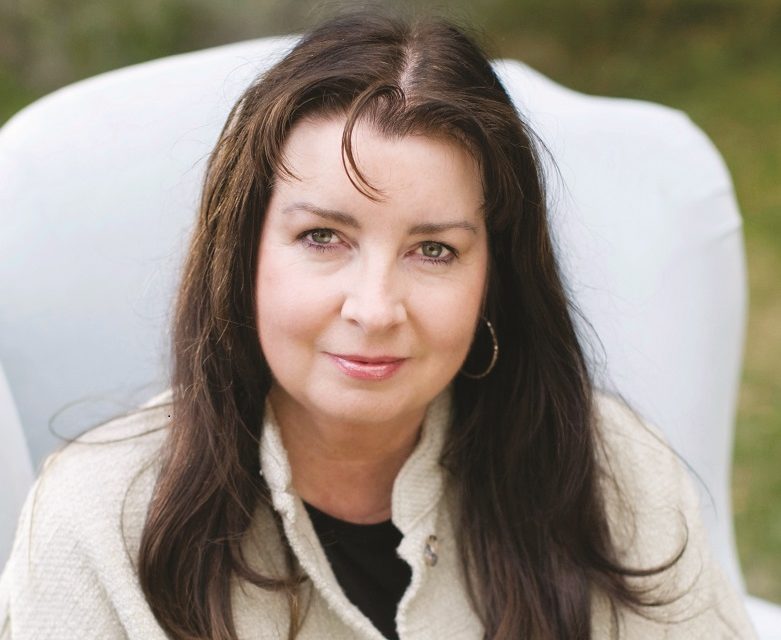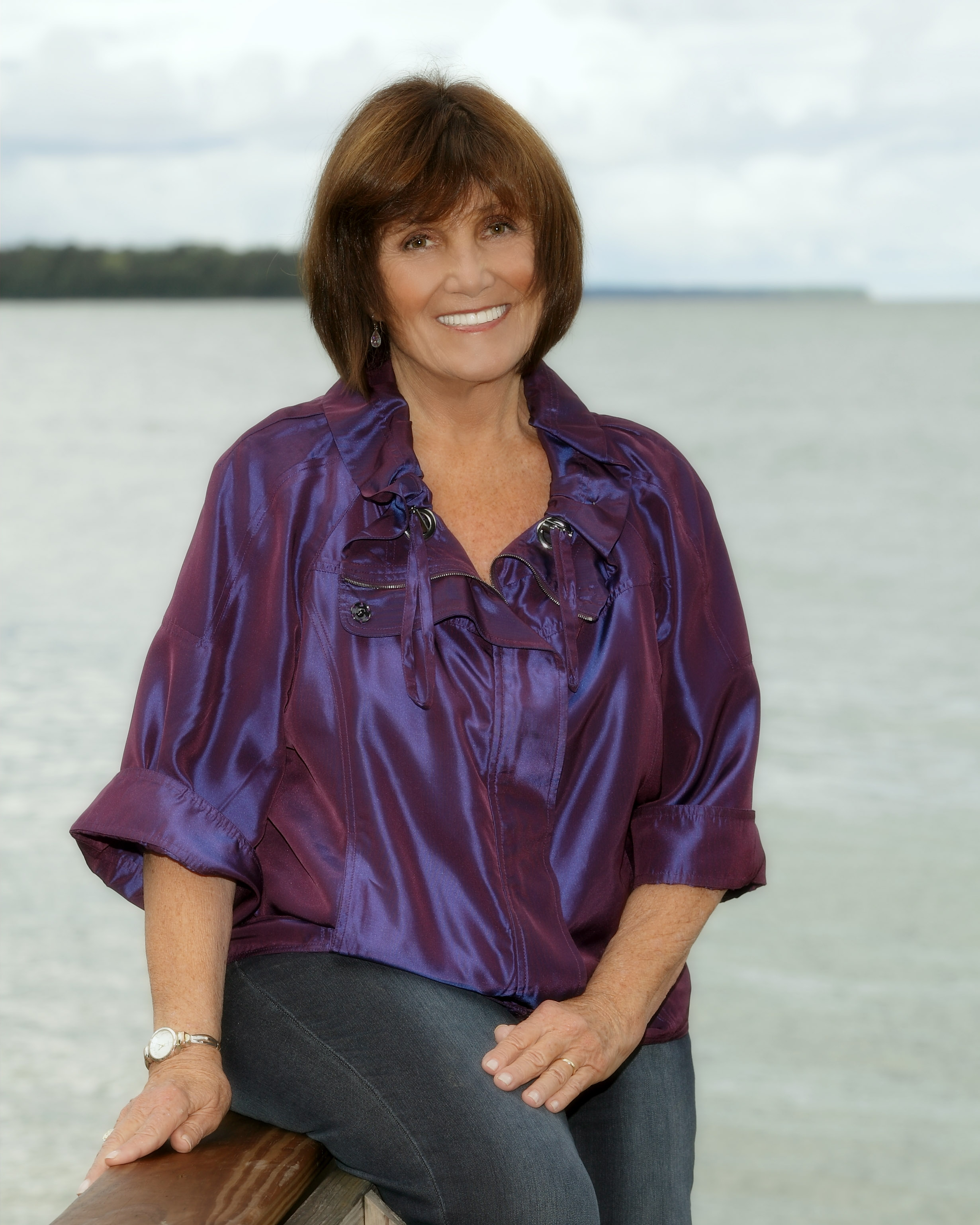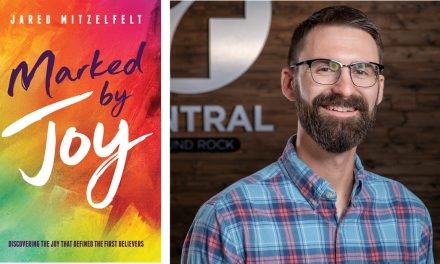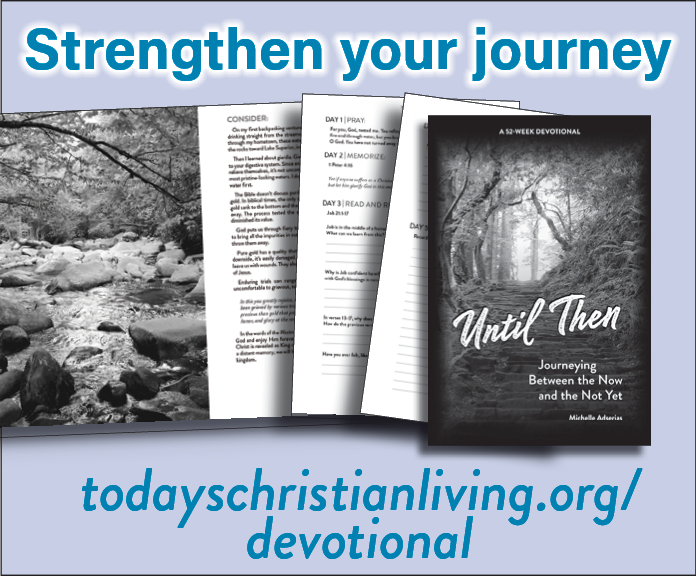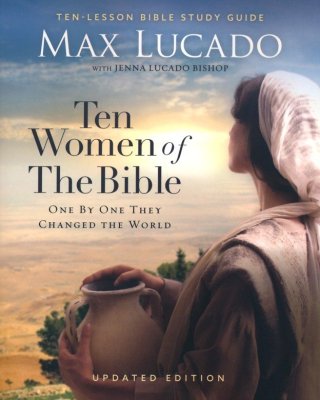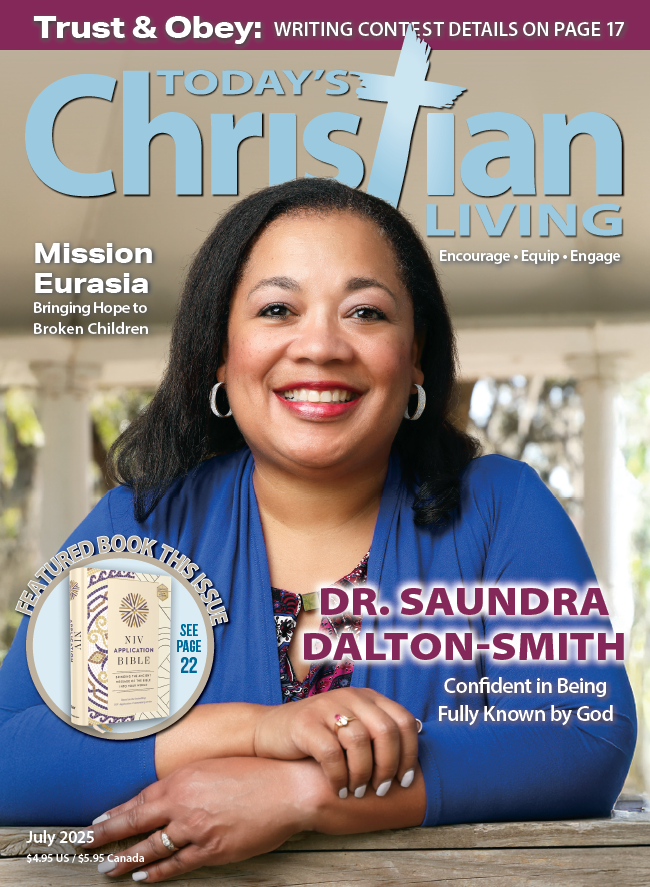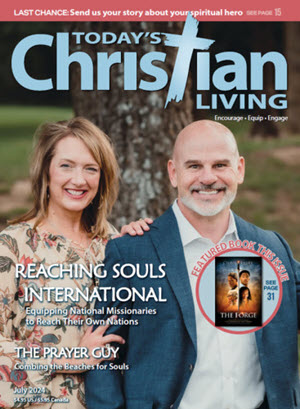How One Author Weaves the Story of Redemption into Her Fiction
By Stephanie Rische
Melody Carlson hasn’t always been a writer, but she has always cherished stories. Now that she’s several decades into her writing career, the reading world is richer for the stories she has contributed … and there are a lot of them!
Melody has written more than 200 books in the past few decades. She has something for almost everyone: historical fiction, contemporary fiction, young adult novels, picture books, devotionals, women’s nonfiction, Christmas novellas, and screenplays.
“From the earliest ages, I loved the idea of story,” Melody said. “As a little kid, I sat on the swing set, sing-storying. I loved words and rhymes, and writing has always been part of my life.” As a young adult, Melody spent time teaching overseas. “I wrote a million letters back home, because there was nothing else to do!” she said. She received affirmation from friends and family about her ability to spin a tale, but at that point, writing seemed like a hobby, not a career.
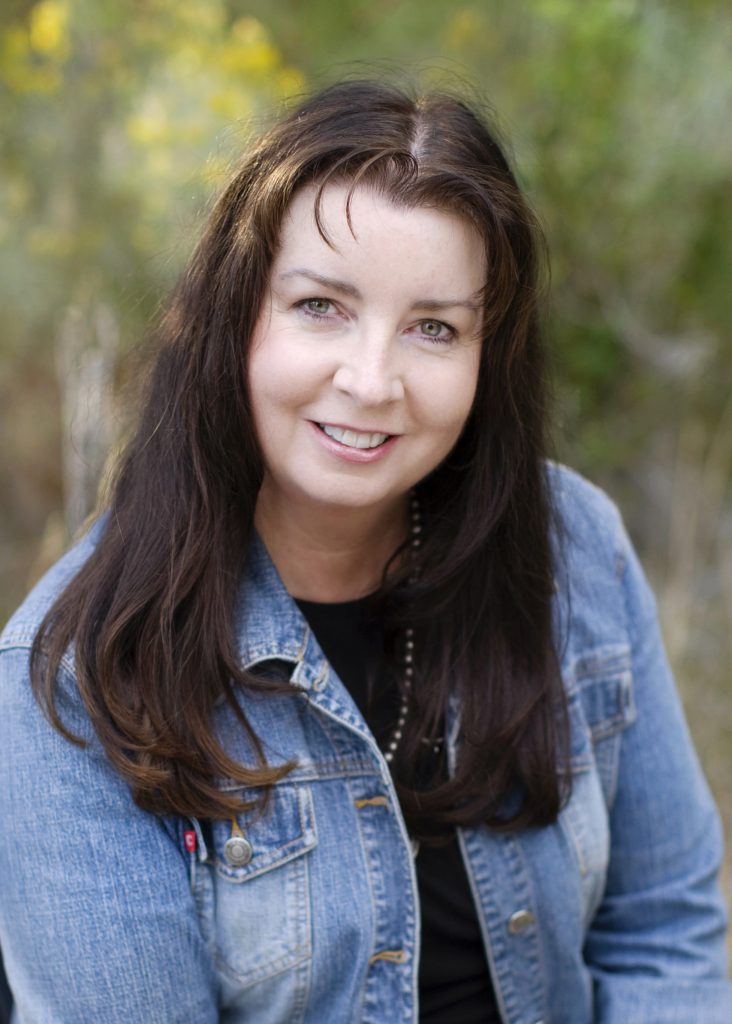
After she got married and started a family, she continued to write informally whenever she could. “I would write all kinds of things — poems, letters to the editor, entries in my journal, articles for the PTA newsletter.” Melody believes that sometimes it takes us a while to recognize the gift we’ve been given because it feels second nature to us. “Writing came naturally to me, like rolling off a log. For many years, I took it for granted.”
It wasn’t until she was in her 30s that Melody realized she wanted to write books. “My older son was a voracious reader. By the time he was 11, he’d read just about everything good for his age at our library, and he wanted to move on to Stephen King novels. I thought surely there were better options, so we went to a bookstore to look at young adult books. But every time we read the first page, we both thought, Really? I turned to my son and said, ‘I could write this badly!’”
The next day Melody got out a yellow legal pad and starting writing. She penned an entire novel on that yellow pad. “That’s the only book I’ve written that didn’t get published,” she said with a laugh.
Finding Inspiration Everywhere
On any given weekday, you can find Melody writing, usually in her studio in the Pacific Northwest. But she doesn’t think of writing as a daily grind. “It doesn’t take much discipline for me because I love it. I guess the old saying is true: find something you love, and you won’t work a day of your life.”
The best part of writing for Melody is, without a doubt, the story. “Writing is experiential for me,” she said. “I’m not an outliner — I’m chasing down the story the way my reader is. I don’t quite know what’s going to happen. I’m following the character, figuring out how to resolve the problem as I go.”
She also enjoys finding ideas for the next book. “My inspiration comes from everywhere!” she said. Once she got the idea for a book after seeing an old pickup on the corner and wondering what the driver’s story might be. She has even written a novel based on a vivid dream. The scene was so compelling that she had to write the backstory to find out what led to that point. Other times her ideas come from personal interest. “During a season when I was getting weary of writing, I bought a vintage camper and restored it myself. My novel Happy Camper was inspired by that experience.”
Melody believes that ideas are limitless. “Every person has a story, she said. “If I sat down and talked to someone, I’d no doubt find the spark for a story from their life.”
Writing as a Form of Community
Writing can feel like an isolated calling at times. But it’s not a solo act; it’s something that requires community — before, during, and after publication.
Long before she became a writer, Melody had a reading teacher who helped her appreciate reading. “I grew up without a dad, and my mom taught in the same school, so this teacher took on sort of a father-figure role in my life. He got me to read Robert Frost and Jack London. And every year he had us do poetry folders, which helped develop my love for writing.” This teacher also offered a prize for whoever read the most books during the school year. “I didn’t want to win, because I was a tomboy and didn’t want to have a reputation as a book nerd. Much to my embarrassment, I won. But now I can see how those experiences helped shape who I am today.”
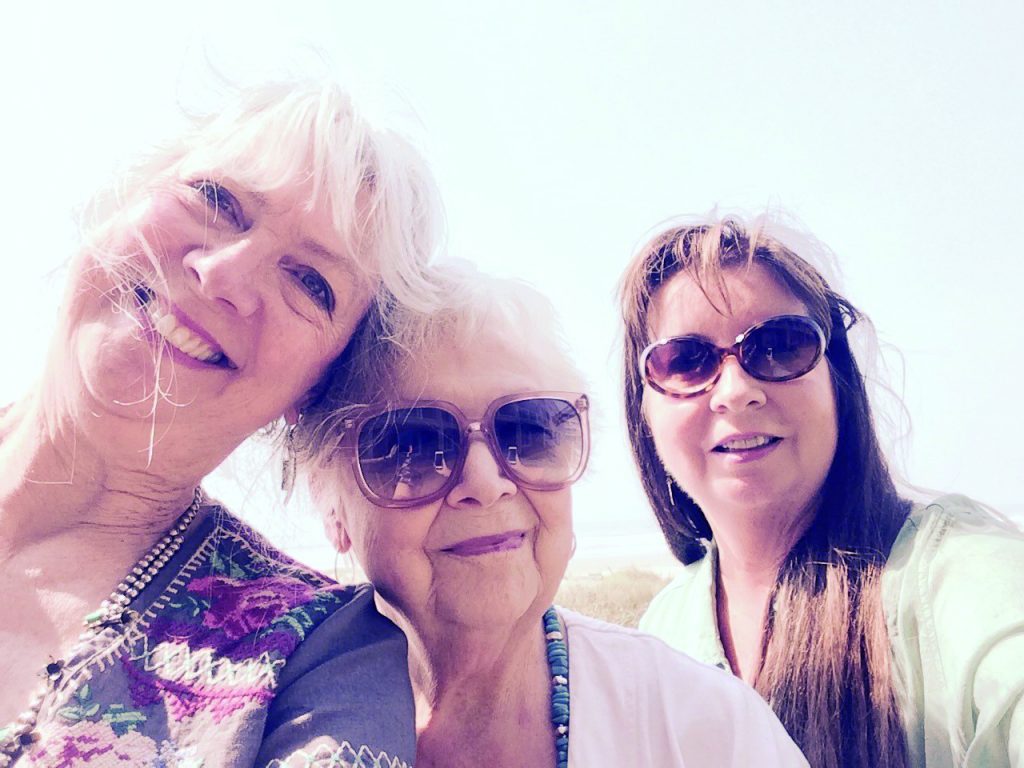
When Melody first started writing, she was part of a critique group, which she views as foundational to her growth as a writer. Over time, those friends scattered across the country. But recently, Melody and a friend started a new critique group in their town. “It has been so refreshing,” Melody said. “I’m also part of online groups, and I have a lot of friends I connect with informally. This is so helpful in getting instant feedback when I have a question.”
The communal part of writing also comes into play through the connection between an author and a reader. “I think my favorite responses to my books over the years have come from the first contemporary YA book I wrote [Becoming Me]. When I was writing it, I thought this was my one chance to do a contemporary story, so I put everything in it.” At the time, Melody had no way of knowing that this book would end up being part of a 16-book series called Diary of a Teenage Girl.
“The characters in the novel had various problems — parents in a marriage crisis and teens struggling with their faith,” Melody said. “In the book, the main character comes to faith in real way and makes some significant commitments to God. “I got letters and letters from girls who said, ‘When Caitlyn made a commitment to God, so did I.’ I still get letters about that book.”
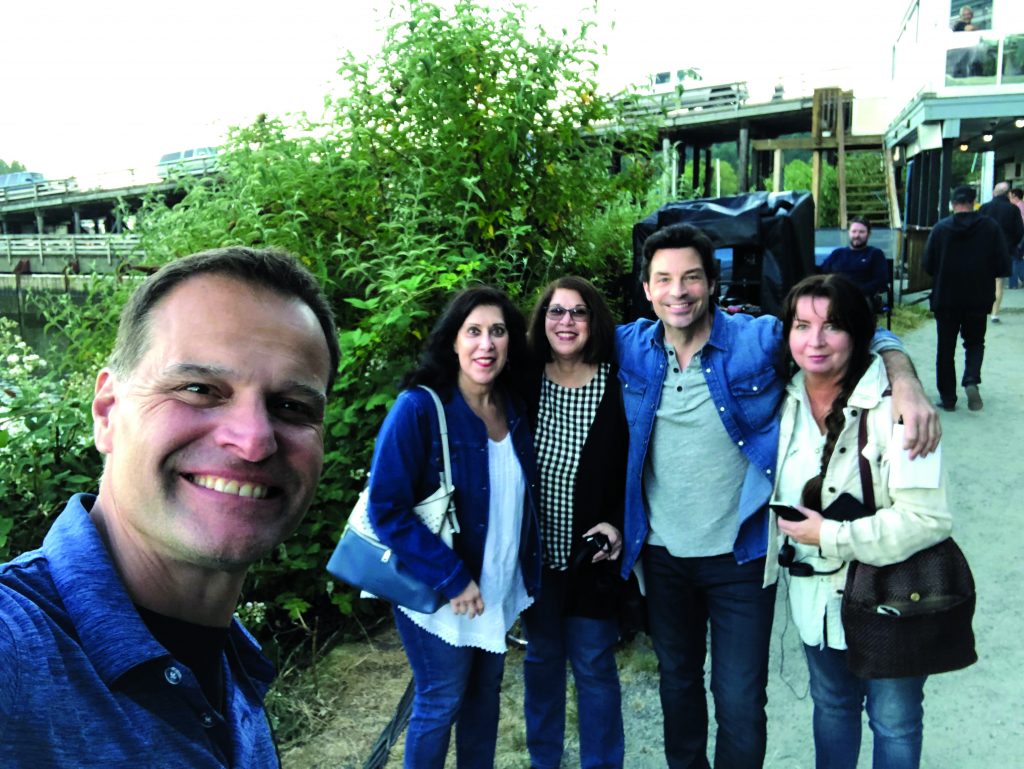
Advice for Writers
Melody has two simple pieces of advice for aspiring writers. The first: “Just start writing! It’s easy to come up with excuses for why you couldn’t or shouldn’t or wouldn’t.” She urges would-be writers to ignore those voices and jump in without worrying if it’s good enough. “Don’t edit yourself — it kills your writing,” she said. “At the beginning, you don’t even know what to edit. If you keep editing the first part, you’ll shut the whole thing down. But if you write the whole thing, you’ll be able to go back and know what to edit later.” Her second piece of advice? “Read a lot in the genre you want to write in. Immerse yourself in it!”
People often ask Melody whether she gets writer’s block. “I don’t really get stuck,” she said. “Honestly, I try not to acknowledge it or give it a name! In my early days of writing, if I felt stalled, I’d just write something crazy that would never happen in the story, and it would jumpstart my brain in another direction.” Another strategy she uses is to walk away and take a break. “Sometimes if I’m not sure what comes next, I’ll just sit and gaze at the trees until something clicks, and other times I’ll sleep on it.” She added with a laugh, “I have the same philosophy about travel. There’s no getting lost; you’ll eventually get there. And you might have an adventure along the way!”
Writing as a Unique Calling
Melody believes that writers have a unique calling — but that everybody else does too. “Some people are gifted at being good neighbors. Some people are good teachers. When it comes to writers, everyone’s calling is different. If we all wrote the same book, it would be trouble!”
A story, she believes, offers a special means to reach people. “The thing I love about Jesus’ teaching is the way He told parables. They’re easy to remember. If someone preaches a sermon, it’s hard for most of us to remember it. But if we hear a story, it’s more likely to stick with us.” With a story, there’s a beginning, a middle, and an end, and it connects with our emotions.
“In every book I write, I want to communicate grace,” Melody said. “With a novel, you can have flawed characters, but as you peel back the layers like an onion, you begin to realize they’re not the people you thought they were.”
In a way, Melody’s books are all reflections of a grander story — the story of redemption.
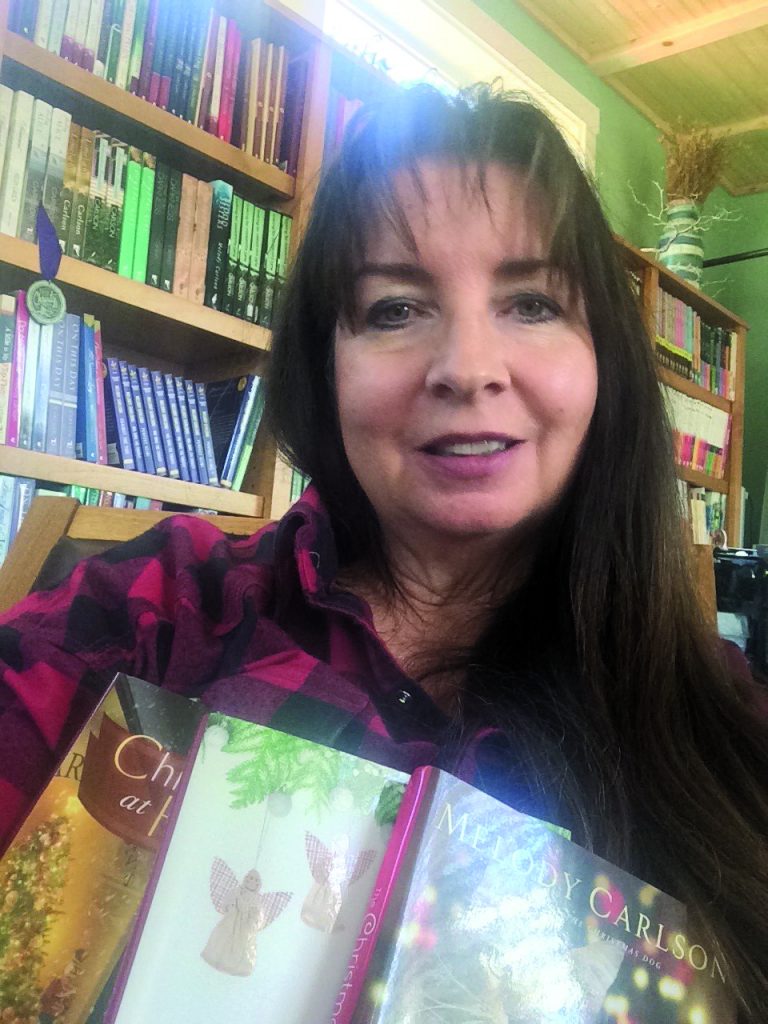
MELODY CARLSON’S BOOKSHELF
It’s hard to pin Melody Carlson down on her favorite audience to write for. “I always say it’s whatever I’m working on at the time,” she explained. “If I’m writing a teen book, that’s my favorite. When I’m in the middle of a Christmas novella, I think, These are so fun! When I’m writing a kids’ book, I get excited about that.”
Melody’s most recent release is a board book set for babies (published in fall 2020): Baby’s First Bible and Book of Prayers Gift Set. “Early in my career, I wrote a lot of kids’ books — probably about 50 — and then I got more involved in teen and adult books,” she said. “But recently it has been touching my heart that kids are little sponges. As a grandmother, I’m seeing in a new way how precious little ones are and how important it is for those seeds to get planted at a young age.”
This boxed set contains two books — one that captures full-color Bible stories and the other a book of rhyming prayers, just right for little hands and hearts. To find out more about Melody’s other books, visit www.melodycarlson.com.
Stephanie Rische edits and writes in the Chicago area, where she lives with her husband and son. When she isn’t chasing down commas or a toddler, she blogs at stephanierische.com. Her memoir, I Was Blind (Dating), but Now I See, recounts how God surprised her with his grace and love.

